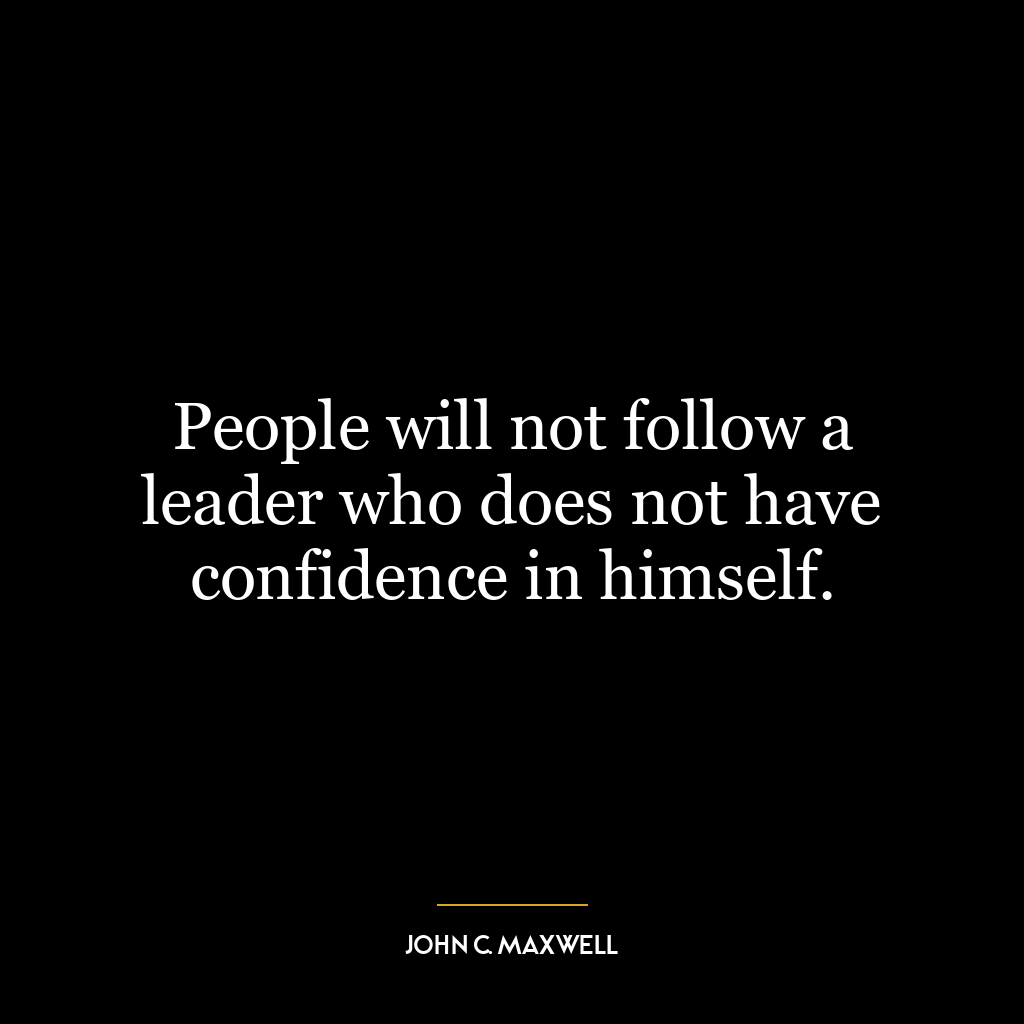People will not follow a leader who does not have confidence in himself.
This quote emphasizes the importance of self-confidence in leadership. It suggests that in order for a leader to inspire and motivate their followers, they need to first believe in their own abilities and judgement. A leader who lacks self-confidence may come across as indecisive or unsure, which can lead to a lack of trust and respect from their followers. On the other hand, a leader who exudes confidence is more likely to be seen as capable and reliable, inspiring their followers to trust in their leadership.
From a psychological perspective, this quote also touches on the concept of mirror neurons, which are brain cells that fire both when we perform an action and when we observe someone else performing that action. This means that if a leader displays confidence, their followers are likely to mirror this confidence, leading to a more motivated and productive team.
In terms of personal development, this quote suggests that building self-confidence is a crucial step towards becoming an effective leader. This could involve developing skills and knowledge, setting and achieving personal goals, and learning to overcome self-doubt and fear of failure.
In today’s world, this idea is highly relevant in various fields, from business and politics to sports and education. For instance, a CEO needs to have confidence in their strategic vision to convince their employees, investors, and customers that their company is on the right path. Similarly, a political leader needs to display confidence in their policies and decisions to win the support of their constituents. In sports, a team captain needs to have confidence in their abilities and strategies to lead their team to victory. And in education, a teacher needs to have confidence in their teaching methods and knowledge to effectively guide their students towards learning and growth.















